‘You’re a joke’: Ugly row on Australia’s future after Labor’s major energy call
A major decision that will affect the future of the nation has caused deep rifts, and things came to the boil on live television.
A potentially nation-changing series of moves from the newly-elected Albanese government have caused a huge divide — with irate pollies taking increasingly hostile shots at each other over the plans.
Labor has long positioned itself as a champion in the push towards renewables — with a target to hit net zero emissions by 2050 being approved by voters as part of its mandate following a landslide victory this month.
But it has become clear this week that we, as a nation at least, are nowhere near done with fossil fuels just yet.
On Wednesday, Labor approved the extension of Australia’s largest gas plant by a massive 40 years — some 20 years beyond the net zero deadline. Newly appointed Environment Minister Murray Watt made the call to grant approval for Woodside’s North West Shelf extension in Western Australia’s Pilbara — allowing the company to extend production and supply the domestic market until 2070.
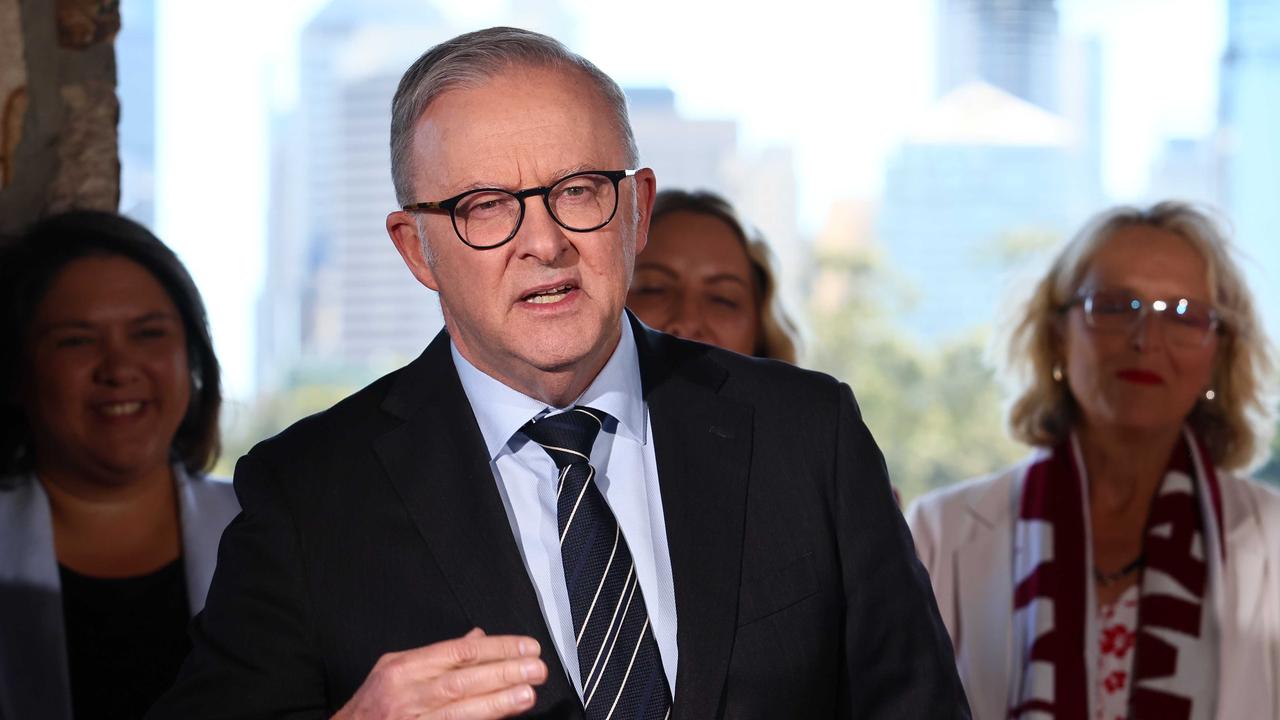
The move was met with anger from environmental groups, the Greens and even two Pacific island nations who accused Australia of putting their very survival at risk.
With a sweeping mandate to impose his vision of Australia’s future and what its energy mix will look like, the Prime Minister is reportedly looking to take further action to back gas as time goes on.
In what would be another major move, energy industry sources told the AFR on Friday Labor is likely to consider developing an east coast gas reservation, amid escalating concerns of a future gas shortage in the eastern states.
The report caused a serious blow-up on Friday when Nationals senator Bridget McKenzie and independent MP Zali Steggall clashed during a Sky News panel.
Senator McKenzie was supportive of the idea while Ms Steggall had serious concerns.
She said while the government should prioritise gas for domestic markets and industrial markets, new reserves would accelerate global warming.
Senator McKenzie then interrupted: “So Zali doesn’t clearly care about prices, she doesn’t care about keeping manufacturing and industrial jobs here at home …
“The people that Zali represents are very affluent people in the heart of Sydney. They don’t have to wash their clothes, wash their faces when they come home from work after a heavy day.”
Ms Steggall was clearly incensed by the interjection.
“You have no credibility, Bridget. You are such a joke. I mean seriously. I’m talking about regional communities facing drought,” she said.
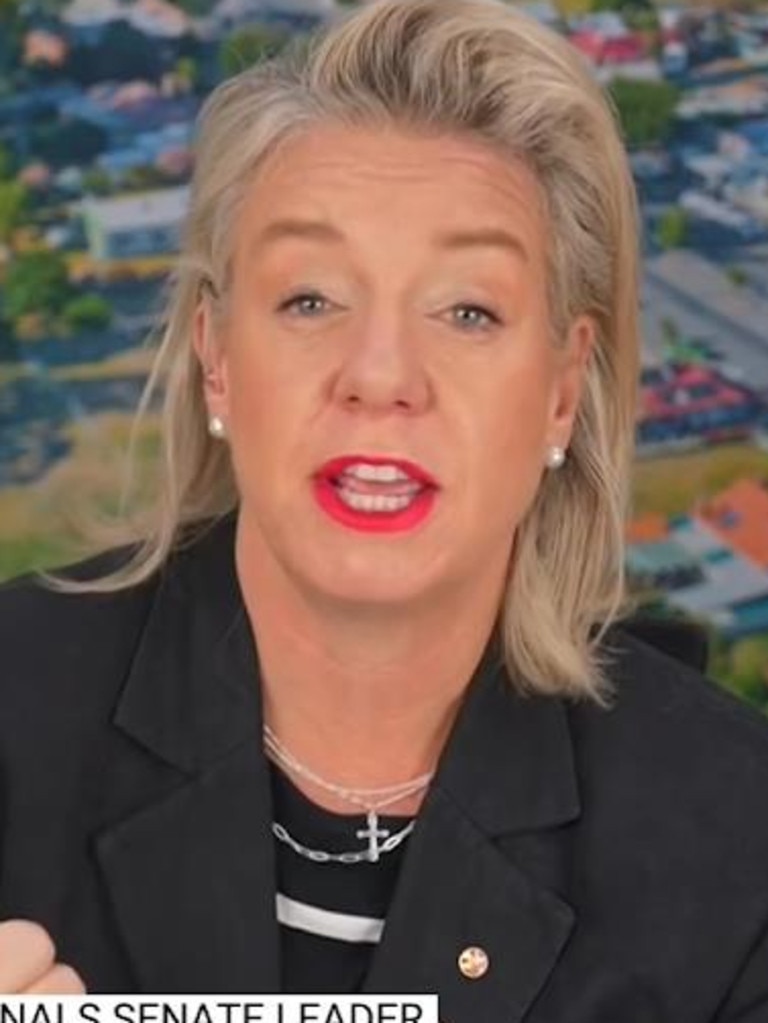

“I’m talking about regional communities facing floods and all you want to do is keep accelerating and increasing the problem.”
‘Australians recognise this to be unfair’
The decision to extend the life of the North West Shelf — Australia’s largest and longest-running liquefied natural gas (LNG) development — is a huge call for the Albanese government.
It was twice delayed by former Minister Tanya Plibersek in Labor’s first term, but unions and business groups have expressed relief after the extension was given the green light this week.
The project has been at the centre of the nation’s energy sector for over four decades, supplying both domestic and international markets
Any Aussie who has seen their power bills rise over the past few years won’t be comforted to know that the majority of the gas being produced at the North West Shelf project is sent overseas, primarily to key markets in the Asia-Pacific region like Japan, South Korea and China.
The project also supplies natural gas to Western Australia’s domestic market. This has been governed by a domestic gas reservation policy, mandating the equivalent to 15 per cent of its LNG exports be set aside for domestic use.

However, there could be changes afoot on this issue too as Resources Minister Madeleine King said this week it was unfair Australians paid high prices for gas while many of the country’s supplies were exported.
“It is as clear as day to everyone who cares to listen that Australians are tired of seeing our vast gas resources exported overseas while simultaneously paying some of the highest gas prices in the developed world,” she told the Australian Energy Producers Conference in Brisbane. “Australians recognise this to be unfair.
“But there remains a lot of work to do to ensure the domestic market remains well supplied.
“A well-supplied domestic gas market at a reasonable price is fundamental to the social licence of this industry to operate.”
She flagged the government may review gas market policy, potentially meaning more of it could be used here in Australia.
One way to leverage this could be state-based gas reservation schemes — which are already in place for the nation’s biggest gas exporters Queensland and Western Australia — for the eastern states.
Labor’s big move on gas is being seen by some as proof the Albanese government’s position had changed in a matter of months, and that it is taking its mandate for change seriously.
After a crushing landslide victory, it is unshackled by the minor parties and Teals — potentially meaning it can make more radical reforms.
“The language within the Labor Party has changed substantially over the course of the last year,” Former Labor minister Joel Fitzgibbon told the Australian Energy Producers conference in Brisbane on Thursday.
“The decision of the North West Shelf yesterday is a clear indicator that Anthony Albanese has taken charge of this area of policy – maybe for the right reasons, but he has interest groups too [in this area], unions for example.”
‘Slap in the face’: Nations furious with Australia
Despite some praise, the call on the North West Shelf project has not been met warmly with some sections of the population, or some nations for that matter.
Tuvalu, a nation in the Pacific with a population of just shy of 10,000, has warned against approving the project — saying its survival is at stake.
Its Climate Minister Maina Talia said the North West Shelf extension “would lock in emissions until 2070, threatening our survival” and undermine Australia’s chances at hosting the next global climate conference in 2026 in partnership with Pacific nations.
Meanwhile Vanuatu’s climate minister said he is devastated by the Australian government’s decision.
Vanuatu’s Minister for Climate Change Ralph Regenvanu said that the extension of the project is “a slap in the face for Pacific Island countries who have repeatedly called on Australia to stop approving new fossil fuel projects”.
He continued to say that the approval “severely undermines our national security and sabotages our future. The single greatest thing the Australian Labor government could do to protect our region is to stop opening new coal and gas projects”.
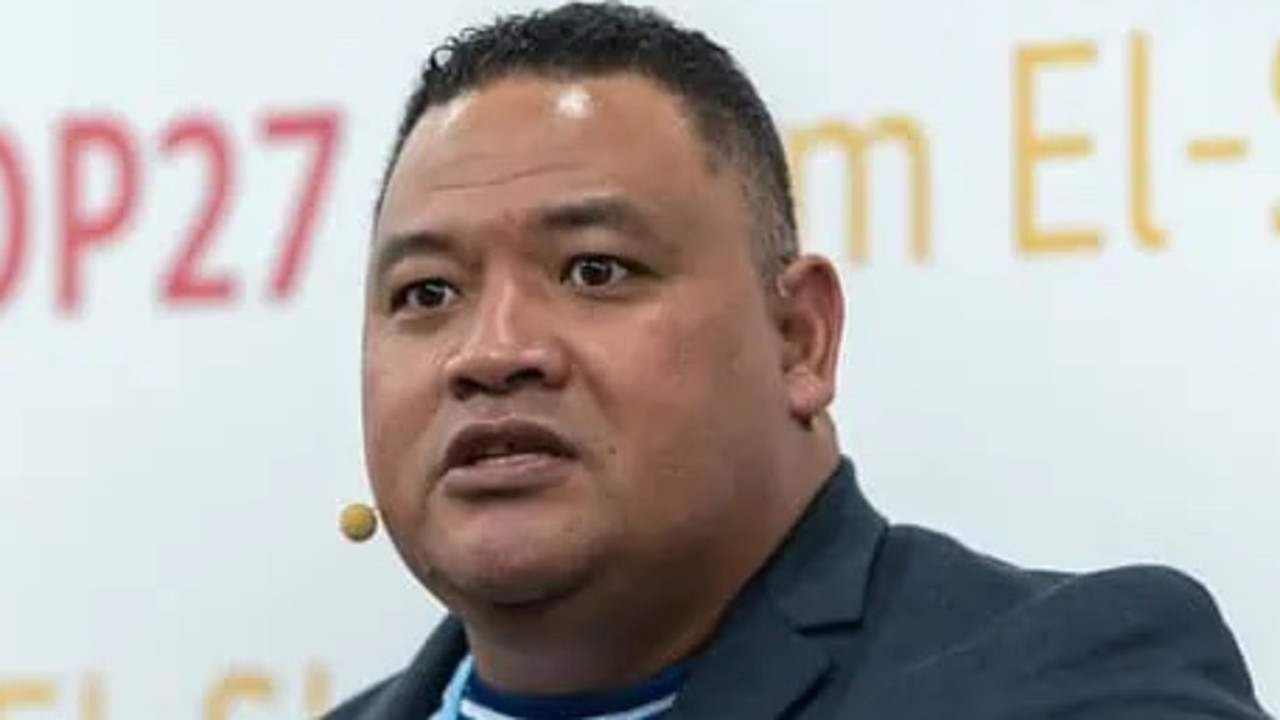
‘See you in court’
Local Indigenous groups have also reacted with fury — claiming the extension puts the ancient rock art of Murujuga, which is adjacent to Woodside’s Karratha Gas Plant on the Burrup peninsula, at risk.
Mardathoonera woman Raelene Cooper, a custodian of Murujuga and a former chair of the Murujuga Aboriginal Corporation, had a simple response to Senator Watt’s green light for Woodside.
“See you in court,” she said. “I’m not on my own, I’m bringing warriors from this ngurra (Country) with me.”
Senator Watt said in making his proposed decision, he had considered “the potential impacts of extending the life of the plant on the national heritage values of nearby ancient rock art” and “economic and social matters concerning the proposed development”.
“Based on the evidence before me and the Department’s recommendations, my proposed decision is subject to strict conditions,” he said.
Mr Watt said the impact of air emissions on the Murujuga rock art that forms part of the Dampier Archipelago was considered as part of the process.
“I have ensured that adequate protection for the rock art is central to my proposed decision,” he said.
Woodside has 10 business days to make additional comment before a final decision is made.
“While this process is ongoing, I will not be making further comment,” Mr Watt said.
‘Failed again’: Greens blow up
The opposition welcomed the announcement, while Greens Senator Sarah Hanson-Young said the Albanese government had “failed again”.
“It seems they have learnt nothing from the last parliament where they continue to approve new coal and gas mines, only to now approve a pollution bomb that is worse than all of the others put together,” she told ABC.
Woodside said the proposed approval would support thousands of jobs and supply “reliable and affordable energy to Western Australia”.
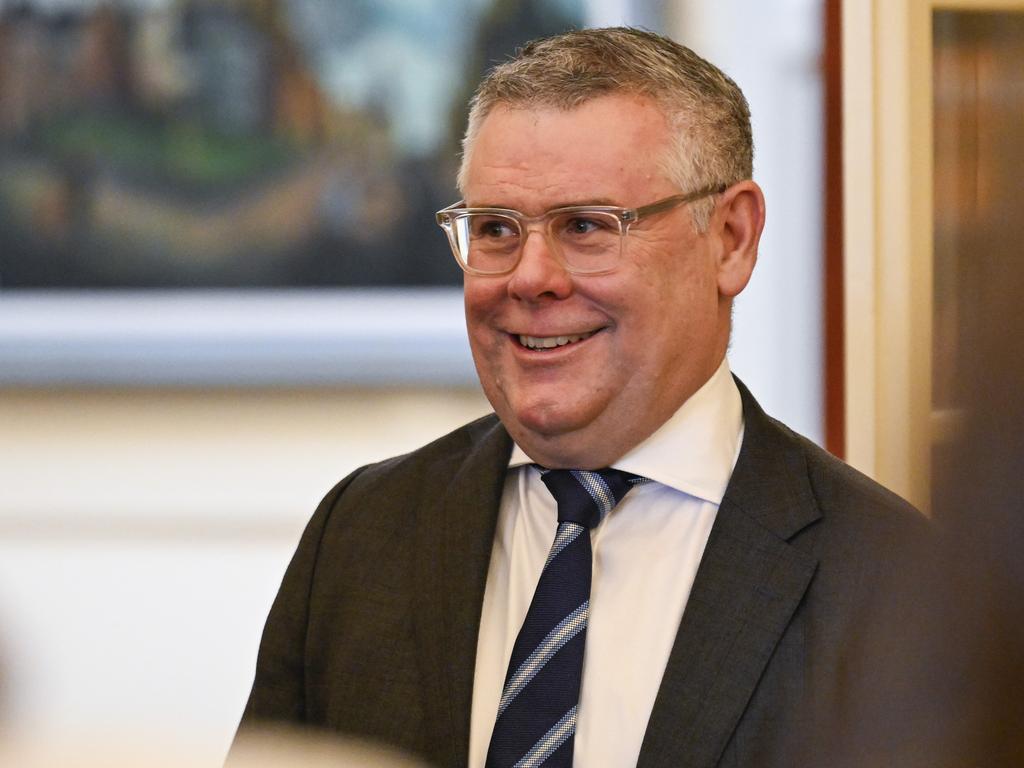
The North West Shelf Project has supplied more than 6000 petajoules of domestic gas, powering homes and industry in Western Australia, the company said — enough energy to power homes in a city the size of Perth for approximately 175 years.
Environmental groups estimate the project will result in 4.3 billion tons of greenhouse gas emissions over its lifetime.
“Since starting operations in 1984, the North West Shelf Project has paid over $40 billion in royalties and taxes and supported regional development opportunities in the Pilbara,” Woodside executive vice president and chief operating officer Australia Liz Westcott said in a statement.
Woodside, the country’s largest oil and gas producer, added it remained committed to protecting the Murujuga sites and supported its World Heritage nomination.
The North West Shelf decision came on the same day UNESCO knocked back Australia’s bid to have the rock art, believed to be up to 50,000 years old, added to the World Heritage List.
The state government environmental approval, granted in 2024, includes a commitment from Woodside for a “significant reduction in air emissions and measures to manage greenhouse gas emissions and to reduce them over time”, and to comply with air quality objectives and standards arising from the Murujuga Rock Art Monitoring Program.
Business groups and unions also supported the call.
“The reality is that we do need more gas, and we need it for a variety of reasons,” Business Council chief executive Bran Black told ABC Radio on Thursday.
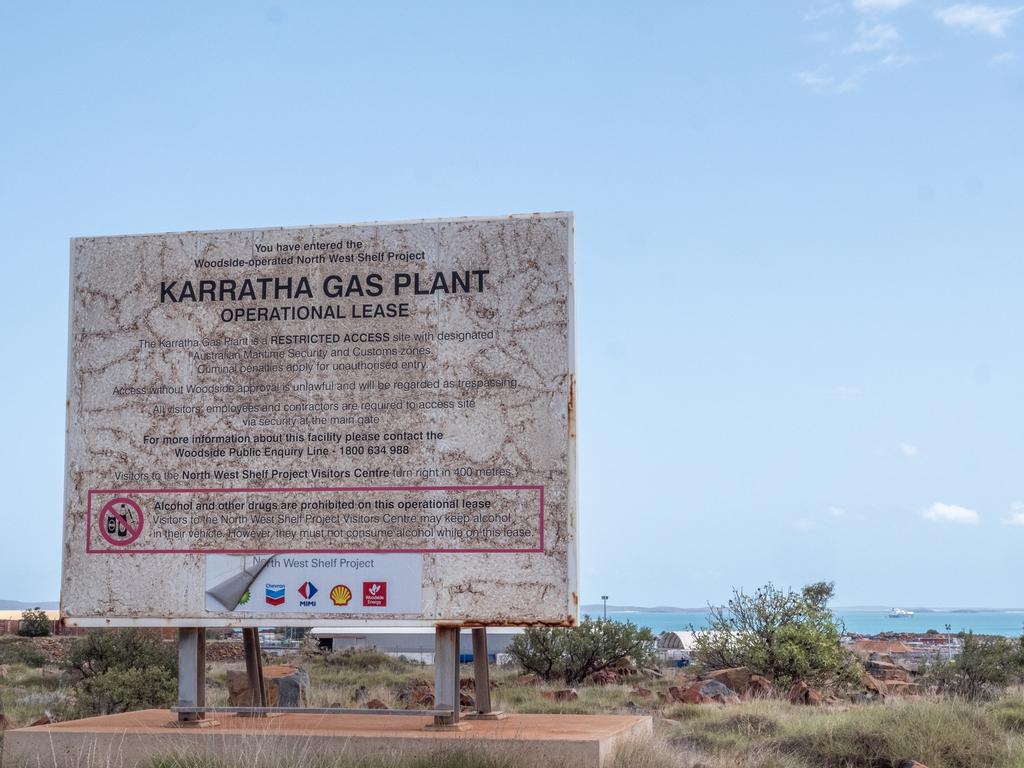
“Of course, we need it for the purposes of our own energy transition, it’s a critical transitional fuel source, but we also need it to support our friends and our allies overseas that have needs of their own in the course of their own energy transition. So that is an important thing, and this project very much contributes to that.”
Mr Black added that the process had highlighted the need to speed up environmental approvals at the federal level for major projects.
“That’s not to say that we want to try and cut corners, indeed, we think it’s critical that these types of processes appropriately balance up environmental, social and economic considerations, but at the end of the day, we’ve got to be able to deliver greater certainty,” he said.
He stressed that the Business Council remained committed to net zero by 2050.
Australian Workers’ Union national secretary Paul Farrow said the announcement “correctly prioritises and secures the future of well paid union jobs in WA and secures supply of a crucial transition fuel we need as more renewable energy sources like wind and solar come online”.
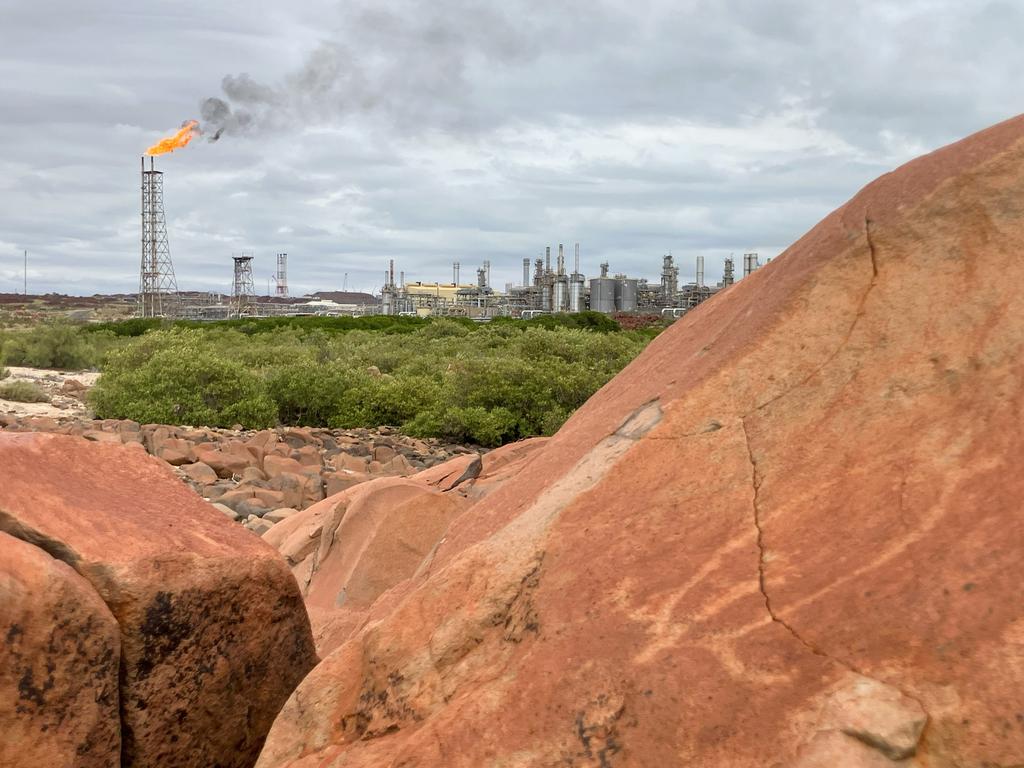
“Today’s decision to maintain a stable, operational project employing well over a thousand hydrocarbons workers in well-paid jobs is a victory for common sense and allows our members to continue their important work for years to come,” he said on Wednesday.
“Although most of the gas produced by the NWS Project is sent overseas, the project also provides a significant amount of gas domestically. Western Australians, from Broome to Bunbury, can now continue to rely upon this essential fuel into the future.”
The decision is likely to be challenged.
Greenpeace said it was a “terrible decision”.
Senator Watt last week formally rejected concerns raised by environmental groups, including Greenpeace, about the North West Shelf extension, clearing the way for final approval.
Environmental groups have raised concerns about the potential impact on Scott Reef, which is home to threatened species such as pygmy blue whales and green sea turtles.
“The North West Shelf facility is one of Australia’s dirtiest and most polluting fossil fuel projects,” Greenpeace Australia Pacific chief executive David Ritter said.
“This approval brings Woodside’s toxic gas plans closer to Scott Reef, holds back the clean energy transition underway in WA, and fuels growing climate damage in Australia and around the world.”
The Climate Council said the project marked the Albanese government’s 27th coal, oil or gas approval since taking office.
“Peter Dutton promised to approve this project before the last election. Voters rejected Dutton,” Climate Council CEO Amanda McKenzie said.
“Why would the Albanese Government take Dutton’s lead on climate policy? Approving the North West Shelf extension leaves a polluting stain on Labor’s climate legacy. Australians voted for a renewable-powered future, not more climate pollution and destruction.”
— with Frank Chung




